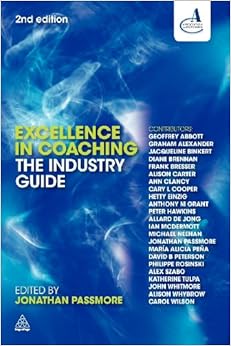Written by: Lauren Buser | Media by: Thomas Hajny
[divide]

Behind the scenes of every sports team is a coach who works to create the team that you watch. But, how does a coach know how to construct, discipline, and treat their team? The ethics behind coaching are what help make the team what it is. It’s not easy to construct a team and keep your personal struggles from affecting your coaching skills. Johnathan Passmore writes an important chapter in his book, Excellence in Coaching, explaining the discipline of coaching ethically.
“Despite its critical nature, it is rarely featured in research papers or in coaching conference papers when compared with evaluation of programs or coaching models. Its relatively low profile in the coaching literature
and in conversations between coaches may be due to the fact that by their very nature ethics is unclear and ambiguous. Almost everyone thinks they are acting ethically,” states Mr. Passmore. Just because a coach feels they are being ethical doesn’t necessarily mean they are. The ICF, or the International Coach Federation, has much to say about the do’s and dont’s of coaching. Their preamble is as follows: “ICF is committed to maintaining and promoting excellence in coaching. Therefore, ICF expects all members and credentialed coaches (coaches, coach mentors, coaching supervisors, coach trainers or students), to adhere to the elements and principles of ethical conduct: to be competent and integrate ICF Core Competencies effectively in their work.” As a working federation, they explain how they feel coaches, students, and other staff members should treat one another in certain situations.

“Counselors, and coaches alike, must also devise strategies to deal with
dilemmas between contractual duties and ethical principles,” Johnathan states. He continues explaining that all jobs including psychologists, counselors, coaches, and even nurses must follow certain ethical guidelines when working with others. Here are some simple ethics that coaches should follow:
1. Conducting practices and games in a safe physical environment
2. Use of current knowledge of proper skills and methods of instruction
3. Use of safe and appropriate equipment
4. Proper short- and long-term planning
5. Proper matching of athletes in practices and games by size, experience and ability
6. Provision of adequate supervision of athletes
7. Provide warnings to parents and athletes of risks inherent in sport participation
8. Sensitivity to the health and well-being of athletes under a coach’s care
9. Provision of appropriate emergency care
Want to check out some more behind the scenes articles? Read up on previous articles here.





























